Best Tower Server for Small Business
Jump to:
When it comes to managing your small business's IT infrastructure, having a reliable and powerful server is key. But with so many options out there, it can be difficult to know where to start. One popular choice for small businesses is the tower server. Tower servers offer many benefits for small businesses, including affordability, scalability, ease of maintenance, flexibility, and noise reduction. But with so many different tower servers on the market, how do you know which one to choose? In this article, we'll take a closer look at some of the best tower servers for small businesses, to help you make an informed decision for your IT infrastructure.
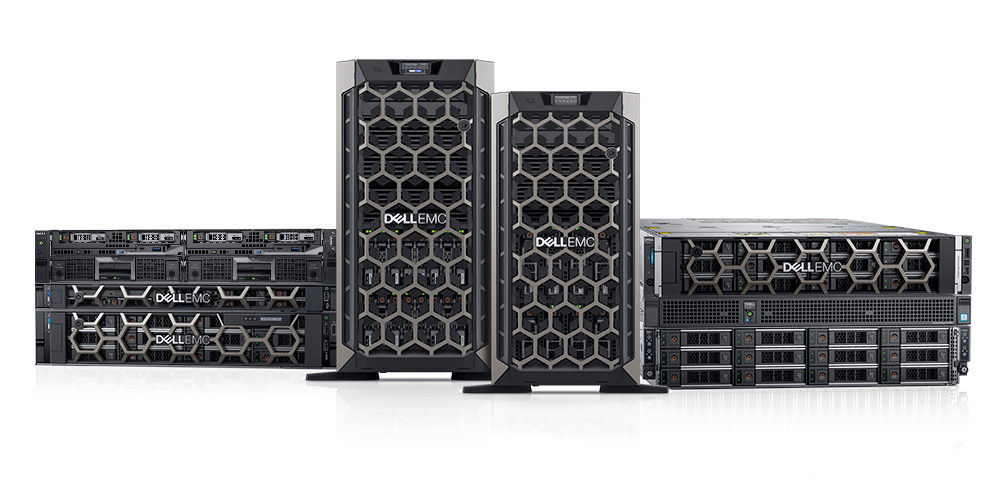
Tower Server vs Rack Server For Small Business
There are several reasons why a tower server may be a better option for a small business compared to a rack server:
-
Cost: Tower servers are generally more affordable than rack servers, making them a good option for small businesses with limited budgets. They also require less additional equipment, such as racks and mounting hardware, which can add to the cost of a rack server.
-
Scalability: Tower servers are generally easier to upgrade and scale than rack servers. With a tower server, you can simply add more components as needed, without having to worry about the limitations of a rack enclosure.
-
Ease of maintenance: Tower servers are generally easier to maintain and repair than rack servers, as they are self-contained units that can be easily accessed for repairs or upgrades. This is especially important for small businesses that may not have a dedicated IT staff to handle server maintenance.
-
Flexibility: Tower servers can be placed in a variety of locations, such as under a desk or in a closet, which makes them a more flexible option for small businesses with limited space. Rack servers require dedicated space and mounting hardware, which may not be practical for smaller businesses.
-
Noise: Tower servers are generally quieter than rack servers, making them a better option for small businesses that need to place their server in a shared space, such as an office or retail store.
While rack servers may be a better option for larger businesses with more complex IT infrastructures, tower servers offer many advantages for small businesses, including cost-effectiveness, scalability, ease of maintenance, flexibility, and noise reduction.
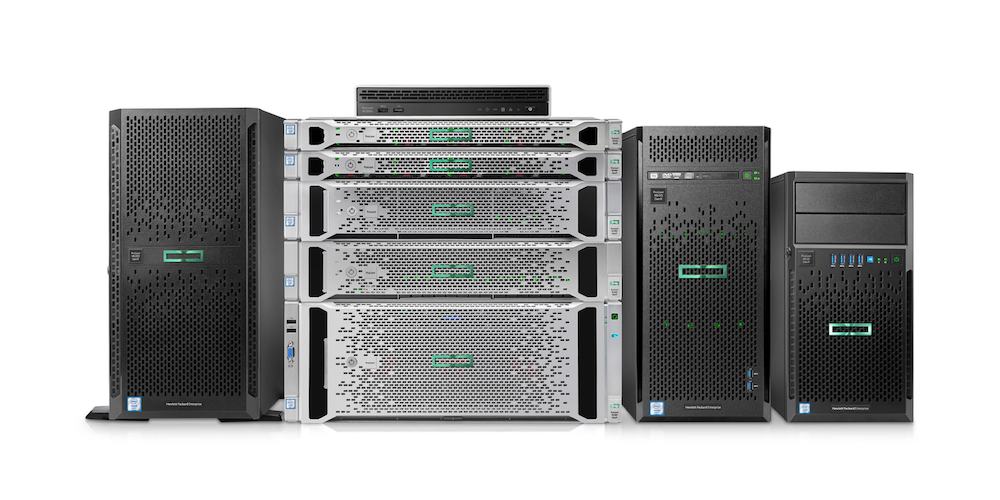
3 Best Tower Servers for Small Business
There are many great tower servers available for small businesses, but here are three options that stand out.
HPE ProLiant ML350 Gen10
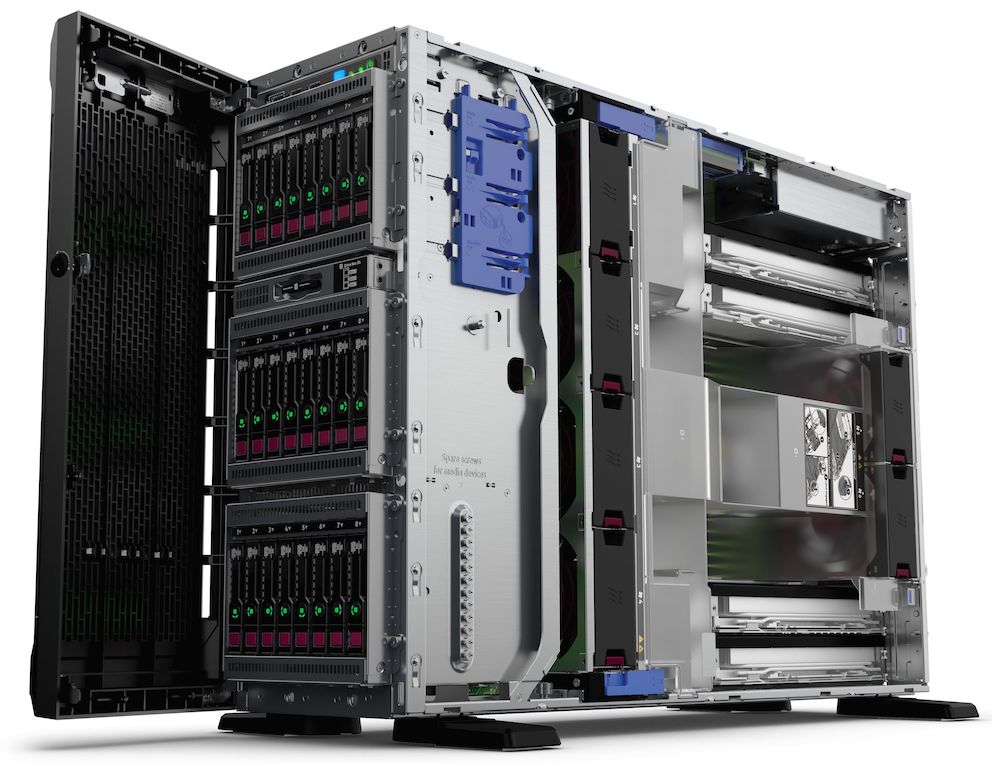
The HPE ProLiant ML350 Gen10 is a high-performance tower server designed for small to medium-sized businesses that need a reliable, scalable, and secure server for their IT infrastructure. It is a versatile server that can be configured to meet a wide range of business needs, including database management, virtualization, and high-performance computing.
Key specs of the HPE ProLiant ML350 Gen10:
-
Processor: Intel Xeon Scalable Processors, up to 28 cores
-
Memory: Up to 3TB of DDR4 memory, with 24 DIMM slots
-
Storage: Up to 24 SFF or 12 LFF SAS/SATA/NVMe drives, with up to 240TB of storage capacity
-
Expansion: Up to 7 PCIe 3.0 slots
-
Networking: 4 x 1GbE ports, optional 10/25/50GbE ports
-
Management: HPE iLO 5, HPE OneView, HPE InfoSight
One of the standout features of the HPE ProLiant ML350 Gen10 is its security capabilities. It includes a wide range of security features, such as HPE's Silicon Root of Trust technology, secure boot, and runtime firmware validation, to help protect against cyber threats and ensure the server stays secure.
Overall, the HPE ProLiant ML350 Gen10 is a powerful and reliable tower server that can meet the needs of small to medium-sized businesses, especially those with demanding workloads and high security requirements.
Dell PowerEdge T440
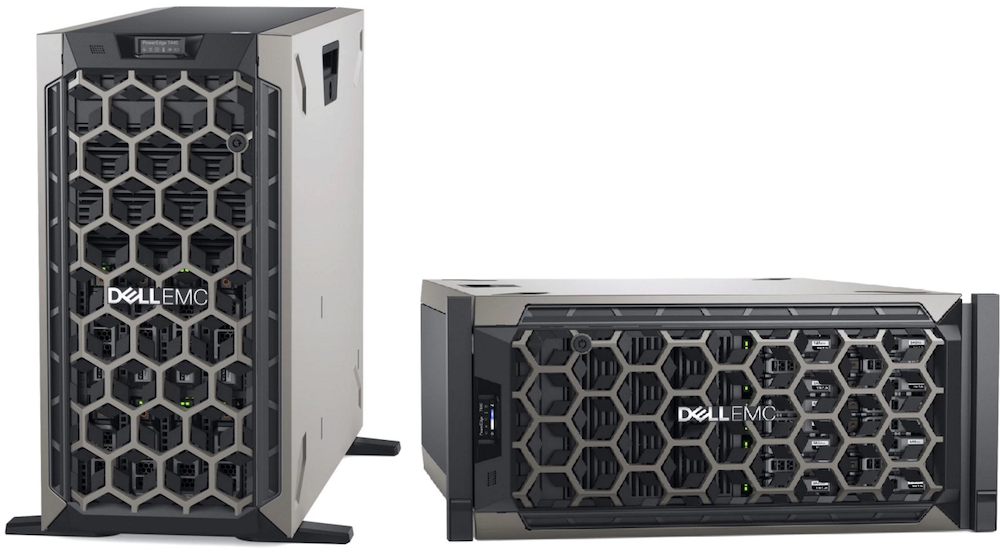
One of the standout features of the Dell PowerEdge T440 is its scalability. It supports a wide range of storage and expansion options, allowing businesses to easily upgrade their IT infrastructure as their needs grow over time. It also includes a range of management tools, such as iDRAC9 and OpenManage Enterprise, that make it easy to manage and maintain.
Key specs of the Dell PowerEdge T440:
-
Processor: Intel Xeon Scalable Processors, up to 28 cores
-
Memory: Up to 3TB of DDR4 memory, with 16 DIMM slots
-
Storage: Up to 16 x 3.5" or 32 x 2.5" SAS/SATA/NVMe drives, with up to 192TB of storage capacity
-
Expansion: Up to 8 PCIe 3.0 slots
-
Networking: 4 x 1GbE ports, optional 10/25/40GbE ports
-
Management: iDRAC9, OpenManage Enterprise
The Dell PowerEdge T440 also includes a range of security features to help protect against cyber threats, such as secure boot, system lockdown, and BIOS recovery. This makes it an excellent choice for businesses that require high levels of security for their IT infrastructure.
Supermicro SuperServer 5029C-T
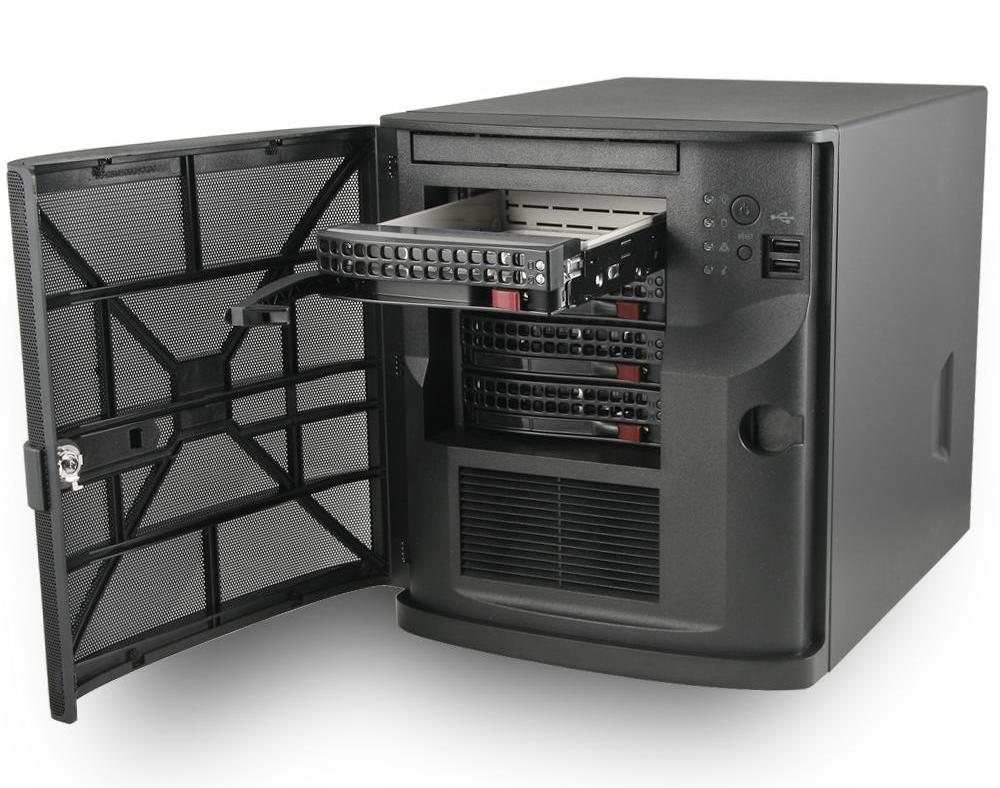
One of the standout features of the Supermicro SuperServer 5029C-T is its compact size. It is designed to fit into tight spaces, making it an excellent choice for businesses with limited space. Despite its small size, the server is powerful and reliable, with features such as hot-swappable components and redundant power supplies to ensure uptime.
Key specs of the Supermicro SuperServer 5029C-T:
-
Processor: Intel Xeon E-2100 and E-2200 processors, up to 6 cores
-
Memory: Up to 64GB of DDR4 memory, with 4 DIMM slots
-
Storage: Up to 4 x 3.5" or 8 x 2.5" SATA drives, with up to 32TB of storage capacity
-
Expansion: 1 PCIe 3.0 x8 low-profile slot
-
Networking: 2 x 1GbE ports
-
Management: IPMI 2.0 with KVM and virtual media support
The Supermicro SuperServer 5029C-T also includes a range of management tools, such as IPMI 2.0 with KVM and virtual media support, that make it easy to manage and maintain.
How to Choose a Tower Server For Small Business
Choosing the right tower server for a small business can be a daunting task, but there are several factors that you can consider to help you make an informed decision:
-
Purpose: Consider the purpose of the server and the specific needs of the business. Do you need a server for basic file sharing and network services, or do you require more advanced functionality? Understanding the purpose of the server will help you determine what type of server to choose.
-
Processor: The processor is one of the most important components of the server, and it can impact the overall performance of the system. Look for a processor that can handle the workload of the business and can be upgraded as needed.
-
RAM: The amount of RAM will also impact the performance of the server, so it's important to choose a server with enough RAM to handle the workload of the business.
-
Storage: Consider the amount of storage required and whether you need a server with hot-swappable hard drives or other storage features.
-
Network connectivity: Look for a server with multiple network interfaces, including Gigabit Ethernet, to ensure reliable network connectivity.
-
Operating system: Consider the operating system that the server will run, and ensure that it is compatible with the software and applications used by the business.
-
Brand and Support: Choose a reputable brand with good customer support and warranty options.
-
Budget: Consider the budget available for the server and choose a server that offers the best value for the price.
By considering these factors, you can choose a tower server that is well-suited to the needs of your small business, offers good performance and reliability, and is within your budget.
Or simply ask the experts at servermall.com for a free consultation. We will help you find the right configuration for your business.
Conclusion
In conclusion, finding the right tower server for your small business is crucial for maintaining a reliable and secure IT infrastructure. We've reviewed some of the best tower servers on the market, each with their own unique features and benefits. While each of these servers has its own strengths, it's important to choose the one that best fits the needs of your small business. Consider factors such as cost, scalability, ease of maintenance, flexibility, and noise reduction when making your decision. With the right tower server, you can ensure that your small business is equipped to handle your IT needs both now and in the future.